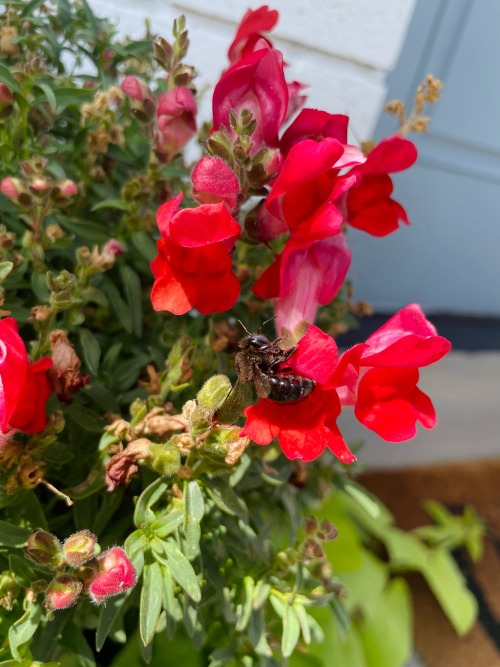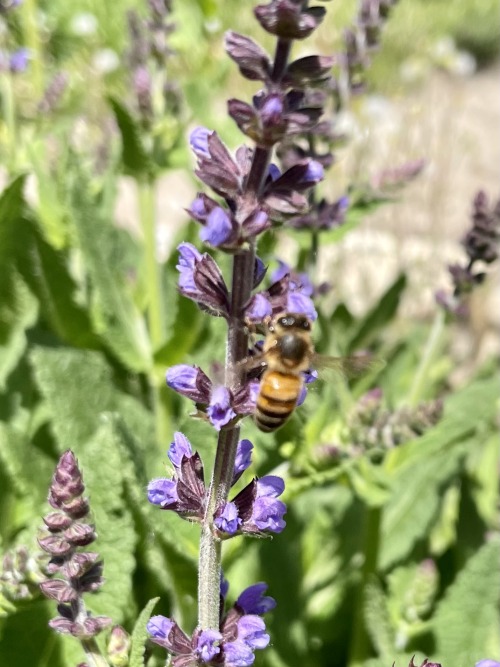I Like The Direction This Is Going In, But I Think It’s Missing Some Nuance.
I like the direction this is going in, but I think it’s missing some nuance.
My main critique is that this fails to realize just how complex computers really are. Because of this complexity there has to be different layers of user interaction with varying complexity, and consequently, control.
As someone who has dabbled in programing, I can give some insight as to why some tools are made exclusively for command line: gui's are not easy to make. Even harder if you want it to be any good. When I want to make a tool or program to do something for me, I don't choose to make it only accessible from the command line because I want to disadvantage others or otherwise maintain a status quo where I have an advantage, I do it out of practical necessity; programming is a hobby I use to accomplish things when I can't tools that do what I want, and as a hobby I don't sink enough time into it to make everything into polished gui's. There is something to say regarding companies who have the resources deciding not to make a gui when they could, but that's not an issue I'm aware of.
I really love the critique of how computers are currently structured, specifically folders and file structures. For files and folders that the computer is directly using (say by the os or applications) I would say folders are probably a decent way of ordering things. Or that is to say I can't think of a better way to structure things in an efficient way for the computer to access. (I know your critiquing the focus on efficiency, but for resources used by the computer itself, not the user, efficiency is important. Poor efficiency results in worse system performance, and so is not desirable.)
Returning to files (or equivalent concept) that are used by the user, there really is no reason why they should be ordered the same as the operating system does it. There is a pretty good argument that they shouldn't be ordered in such a way, which I believe is what is being argued above. I personally order my files and notes in folders mostly out of a practical need. There are alternatives though, look into Personal Knowledge Management systems and the tools that make them possible. My personal favorite is Obsidian, and in there I don't order files using folders, I use tags and note metadata. To track books I'm reading for example, I have a '#books' tag to designate the notes, and then I use a combination of properties ('status' with 'reading', 'read', 'tbr' or 'progress' with the number of pages I've read so far, etc). I can then use special searches to create lists of notes to surface information or content that is useful and easy to find. To make my point, I think that there are tools allowing users to already go beyond the hierarchical file/folder structure. They might have farther to go, but I think people are interested enough in them that they are improving.
Should using the command line be necessary? Honestly, no. It probably shouldn't. Should the command line not exists? Also no. Because of the complexity of computers, I don't think we should try to remove that lower level. Should we improve the higher levels? Give more control to users without requiring them to go to harder to use mediums, such as a command line? One hundred percent!
I would also agree that command line and computer system management stuff does have a steep learning curve. And unfortunately I don't see that going away; it's sort of in their nature to be hard to learn. Maybe I'm being a broken record, but computers are complex. That doesn't mean that the user interface (gui 99% of the time) should be difficult to learn. And to the point above, that control should require a steep learning curve.
There is an argument to be made though regarding giving command line tools and interaction some grace. If the goal is to make user interfaces that are easiest to use for different individuals, that is what works for one person might not work for another, so we need several options for different individuals and tasks, then I would say command line interfaces should be included in that. I would say that they can be the best tool for some people and for some tasks. Not all tasks, and not all people though, which ties back in to the necessity of using them if you want to do certain things. Perhaps that shouldn't be necessary.
It is also worth pointing out that due to the complexity of computers, if the user had easy control over their entire system, they could very easily mess it up in irreparable ways. Because of this it might be a benefit to have difficult interface options such as command lines that have a steep learning curve, because it requires by nature that the user knows, to a degree, what they are doing, and are thus less likely to case permanent damage.
That was a lot. Thanks for reading this far!

More Posts from Samalander7 and Others
“Strangely, treating knowledge as an end in itself reaps the kind of practical rewards that valuing merely instrumental knowledge may struggle to produce.”
- from “How We Lost Our Focus (and why it should scare you)” by Unsolicited advice (https://youtu.be/oxJkj-C4vjs)
Honestly it is my opinion that knowledge and learning and thinking and all that they entail are valuable in and of themselves: that is to say I take the original poster’s idea a step farther and value ‘useless degrees’ even if they are objectively useless from a practical sense. For me knowledge is an end unto itself, valuable because it is and not because of what it might do.
It’s also worth noting that a lot of very valuable math with a lot of practical applications now started out this way: as purely abstract and only valuable in and of itself. So it seems to me that this perspective doesn’t harm applying the concepts in the long term, but actually helps it.
It seems to be the case that by only chasing what is immediately useful we will miss vast amounts of information and thoughts and development that will become useful or even needed later down the line.


Shallan and Adolin in Oathbringer and onward is just true relationship goals. Like this excerpt from Oathbringer is so heartwarming:
“Oh? And is that what women are supposed to seek in a mate? Is it in the Polite Lady’s Handbook to Courtship and Family? The Bekenah edition, maybe? ‘Ladies, you can’t possibly marry a man if he can’t fly.’ Never mind if the other option is as handsome as sin, kind to everyone he meets regardless of their station, passionate about his art, and genuinely humble in the weirdest, most confident way. Never mind if he actually seems to get you, and remarkably listens to your problems, encouraging you to be you—not to hide yourself away. Never mind if being near him makes you want to rip his shirt off and push him into the nearest alleyway, then kiss him until he can’t breathe anymore. If he can’t fly, then well, you just have to call it off!”
She paused for breath, gasping.
“And…” Adolin said. “That guy is … me?”
“You are such a fool.” She grabbed his ripped coat and pulled him into a kiss, passionspren crystallizing in the air around them. The warmth of the kiss did more for her than the tea ever could. It made her bubble and boil inside. Stormlight was nice, but this … this was an energy that made it dun by comparison.
Storms, she loved this man.
When she let him out of the kiss, he grabbed her and pulled her close, breathing heavily.
“Are you … are you sure?” he asked. “I just … Don’t glare at me, Shallan. I have to say this. The world is full of gods and Heralds now, and you’re one of them. I’m practically a nobody. I’m not used to that feeling.”
“Then it’s probably the best thing that’s ever happened to you, Adolin Kholin. Well. Except for me.” She snuggled against him. “I will admit to you, in the interest of full honesty, that Veil did have a tendency to fawn over Kaladin Stormblessed. She has terrible taste in men, and I’ve convinced her to fall in line.”
“That’s worrisome, Shallan.”
“I won’t let her act on it. I promise.”
“I didn’t mean that,” Adolin said. “I meant … you, Shallan. Becoming other people.”
“We’re all different people at different times. Remember?”
“Not the same way as you.”
“I know,” she said. “But I … I think I’ve stopped leaking into new personas. Three for now.” She turned around, smiling at him, his hands still around her waist. “How do you like that, though? Three betrotheds instead of one. Some men drool over the idea of such debauchery. If you wanted, I could be practically anyone.”
“But that’s the thing, Shallan. I don’t want anyone. I want you.”
“That might be the hardest one. But I think I can do it, Adolin. With some help, maybe?”
He grinned that goofy grin of his. Storms, how could his hair look so good with gravel in it? “So…” he said. “You mentioned something about kissing me until I can’t breathe. But here I am, not even winded—”
He cut off as she kissed him again.
Like, if that's not one of the most well developed scenes between Shallan and Adolin, I don't know what is. It's the best kind of fantasy love when a partner declines a literal person who can FLY, just to stick with their "normal" partner. The moral of the story: love, true love, doesn't care whether one has wealth or power. Love cares for the personality.

shout out to everyone who participated in the january-february mass depressive episode
It really hurt when Hoid respawned after being vaporized and immediately frantically wanted to go back. He's been such a strange character in these 5 books. I've never been able to unhear him saying he'd let Roshar burn before he let Odium free (presuming that is what he meant), but when push came to shove even he admitted that he didn't know if he could do that. He loves that world. He loves the people on it. He didn't want to return because he thought he actually had a chance at stopping Retribution, he wanted to return because people he loved were there and he didn't want them to suffer alone.
It's only after he realizes that Roshar actually has a genuine chance at winning that he stays where he is. Because Dalinar did something wonderful and frightening and brilliant, and Hoid can use that.
He can do more to help by influencing the other worlds to grow in the ways they need to, and trying to convince the other Shards to listen. And so when he does come back to the place and the people he loves, he will be prepared to help them win.





Tweet
Amazing poetry!
It's quiet by the firepit,
The pops and the crackles,
making the conversation.
The flames lick the wood,
the smoke, an annoyance I
try to avoid.
But that's where we connect.
You crack jokes,
(really, really bad jokes)
and I laugh,
because just the sound of
your voice,
your laugh, your smile,
Fills me with joy.
The little things, they
are what I long for,
what I truly want.
I want to know your favorite
color, song, food, car.
I want to know
how you take your coffee,
what you think of berfore bed
what your goals are for life.
But most of all,
I want to see how you see
me.
I catch your gaze across the
fire the light and mirth
in your beautiful eyes
reflecting the devoted falmes.
This is nice.
I smile; you smile back.
My stomach flies away,
Along with my heart, and I think,
Love is quiet, like the firepit.
-
 evquadebf reblogged this · 3 weeks ago
evquadebf reblogged this · 3 weeks ago -
 lilymimy-blog liked this · 3 weeks ago
lilymimy-blog liked this · 3 weeks ago -
 branmuffins22 liked this · 4 weeks ago
branmuffins22 liked this · 4 weeks ago -
 localowlhousefanatic reblogged this · 1 month ago
localowlhousefanatic reblogged this · 1 month ago -
 digikitty21 liked this · 1 month ago
digikitty21 liked this · 1 month ago -
 unagi-eel reblogged this · 1 month ago
unagi-eel reblogged this · 1 month ago -
 apatheticjoy reblogged this · 1 month ago
apatheticjoy reblogged this · 1 month ago -
 plat12 liked this · 1 month ago
plat12 liked this · 1 month ago -
 raelsadalmalik liked this · 1 month ago
raelsadalmalik liked this · 1 month ago -
 lemonsquiddo liked this · 1 month ago
lemonsquiddo liked this · 1 month ago -
 itskirbover liked this · 1 month ago
itskirbover liked this · 1 month ago -
 sudo-chomp reblogged this · 1 month ago
sudo-chomp reblogged this · 1 month ago -
 sudo-chomp liked this · 1 month ago
sudo-chomp liked this · 1 month ago -
 evquadebf liked this · 1 month ago
evquadebf liked this · 1 month ago -
 keyboardsmashingcat liked this · 1 month ago
keyboardsmashingcat liked this · 1 month ago -
 blainethebozo liked this · 1 month ago
blainethebozo liked this · 1 month ago -
 riverwizard27 reblogged this · 1 month ago
riverwizard27 reblogged this · 1 month ago -
 riverwizard27 liked this · 1 month ago
riverwizard27 liked this · 1 month ago -
 dirichletttt reblogged this · 1 month ago
dirichletttt reblogged this · 1 month ago -
 passionateclown reblogged this · 2 months ago
passionateclown reblogged this · 2 months ago -
 wowitscow reblogged this · 2 months ago
wowitscow reblogged this · 2 months ago -
 wowitscow liked this · 2 months ago
wowitscow liked this · 2 months ago -
 yorkovna liked this · 2 months ago
yorkovna liked this · 2 months ago -
 cursingsnake-blog liked this · 2 months ago
cursingsnake-blog liked this · 2 months ago -
 heating-element liked this · 2 months ago
heating-element liked this · 2 months ago -
 n643064 liked this · 2 months ago
n643064 liked this · 2 months ago -
 lifeofanoverdramaticmess liked this · 2 months ago
lifeofanoverdramaticmess liked this · 2 months ago -
 flowgninthgil liked this · 2 months ago
flowgninthgil liked this · 2 months ago -
 kittycatcarla reblogged this · 2 months ago
kittycatcarla reblogged this · 2 months ago -
 lily-the-smol liked this · 2 months ago
lily-the-smol liked this · 2 months ago -
 cyberstrike-1702 liked this · 2 months ago
cyberstrike-1702 liked this · 2 months ago -
 ckl116 liked this · 2 months ago
ckl116 liked this · 2 months ago -
 thineoddball liked this · 2 months ago
thineoddball liked this · 2 months ago -
 c1oudychan liked this · 2 months ago
c1oudychan liked this · 2 months ago -
 enkiduofvideogames liked this · 2 months ago
enkiduofvideogames liked this · 2 months ago -
 enkiduofvideogames reblogged this · 2 months ago
enkiduofvideogames reblogged this · 2 months ago -
 kainamite15 liked this · 2 months ago
kainamite15 liked this · 2 months ago -
 turbozarky reblogged this · 2 months ago
turbozarky reblogged this · 2 months ago -
 turbozarky liked this · 2 months ago
turbozarky liked this · 2 months ago -
 amethyst-marshmallow liked this · 2 months ago
amethyst-marshmallow liked this · 2 months ago -
 passionateclown reblogged this · 2 months ago
passionateclown reblogged this · 2 months ago -
 passionateclown liked this · 2 months ago
passionateclown liked this · 2 months ago -
 kreetzel reblogged this · 2 months ago
kreetzel reblogged this · 2 months ago -
 pokespefangirl liked this · 2 months ago
pokespefangirl liked this · 2 months ago -
 moogmatriarch liked this · 2 months ago
moogmatriarch liked this · 2 months ago -
 unicronian liked this · 2 months ago
unicronian liked this · 2 months ago









